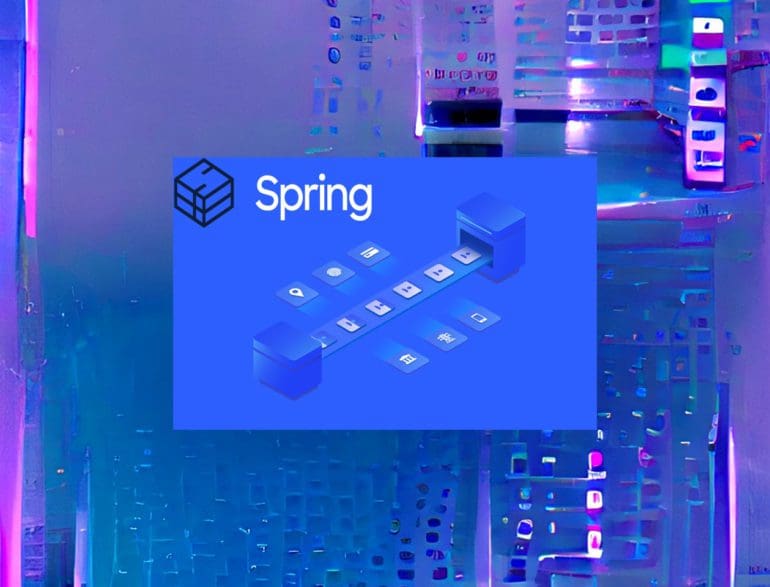The Wormhole DeFi bridge connecting blockchains was hacked last week for over $320 million of Eth wrapped to the Solana blockchain.
Wormhole said they reimbursed the money, but regulators building crypto controls couldn’t have been happy with hacks like that.
Though web3 loathes regulation by default, losing millions from a lack of security can ruin lives.
One partnership announced at the end of the year may change that: a DeFi-enabled KYC and credit checking system that maintains user privacy.
By the end of 2022, crypto lenders will check customer credit reports through a partnership between Spring Labs and TransUnion. The partnership was announced at the end of the year but was one of the most promising in 2021.
What does it mean for tradfi, DeFi, and fintechs?
As John Sun, CEO and founder of Spring Labs, described, the partnership will build on top of the Spring Labs Ky0x platform, an Ethereum based passport system, or, as John Sun, CEO and co-founder of Spring Labs put it, a network for verifiable secrets.

“So let’s say I have a MetaMask wallet, and I want to be able to post the verifiable secret about myself. I want to be able to signal to a DeFi application that I have at least 750 FICO score,” Sun said. “I would be able to do that through the Ky0x platform, and we’ll be distributing this through an Ethereum-based passport network.”
Sun said the challenge was to offer credit scores and KYC to firms within an ecosystem that prizes anonymity. However, as Valentin Blehaut, director of Strategy at Spring Labs, said, most people in crypto are already accepting less than strictly anonymous practices, like centralized exchanges with funds that require full KYC.
“We’re not all using Zcash, [confidential crypto,]” Blehaut said. “So clearly, people have accepted some level of less than anonymity, or whatever it is that they initially associated with decentralization.”
Blehaut said Ky0x had been the blockchain department of sorts for Spring Labs for a couple of years. Previously, the team launched a Defi Compliance Toolkit on the platform over the summer and plans on bringing more off-chain data on-chain through Ky0x soon. The Spring Labs team called in from Eth Denver and said they are constantly working to know where the ecosystem is headed.
Velentine said that Spring Labs will continue to build out products to offer crypto and defi platforms and that the Trans Union partnership is a vast supply of data that makes that happen.
“Even if you supply credit data today, most defi don’t have modeling capacity or the ability to establish APR metrics of their the loans they are giving out,” Blehaut.
Spring Labs: Decentral does not mean anonymous
It’s not the anonymous crypto world of the Silk Road Days; NYC police arrested the alleged culprits of the $3.6 billion 2016 Bitfinex hack this week.
Authorities and exchanges can already trace down hackers through the current crypto world. But in DeFi, anonymity is a lot of the draw; privacy and ownership of user data is the entire point. To strike a balance between the traditional, we-own-all-the-data credit model and DeFi’s wash-trading-R-us model, Sun said it all comes down to the user’s approval.
“What would happen in practice, from a user experience perspective, is they would go try to interact with the application that requires a credit score,” Sun said.
“The web3 application will automatically come to us and us to grab that information, on behalf of the user from TransUnion. And the user would be able to take that information and post it themselves as a verifiable secret that we would cosign essentially, to prove that a third party had verified a credit score and be able to associate that with a wallet address.”
Like a privatized passport stamp that sits in a wallet address, the credit and KYC check would help exchanges looking for bare minimum background checks. Sun emphasized that the user-controlled the verification and exercised ownership over the data by sharing it.
Building a bridge as partners
A true verified private check would change everything for crypto lending, but why is TransUnion leading the way toward what could be the next era of credit checks?
DeFi has blown up in value in the past year, with dapps built on Ethereum alone ballooning to $200 billion in November from around $20 billion the year before, according to J.P. Morgan.
Taking off-chain credit data on-chain and running KYC might be the key to unlocking the asset class for traditional institutions like Fidelity that cannot hold crypto directly on US balance sheets.
In speaking with Liz Pagel, the SVP of Consumer Lending at TransUnion, the firm was excited about DeFi, more than was previously known.
Pagel was excited to talk about the partnership and the beginning of innumerable products TransUnion could offer the DeFi space.

“So when we think about what Spring Labs can do, it truly complements what TransUnion can bring to market. TransUnion has the data, has the analytics, and has these assets,” Pagel said.
“The combination of TransUnion’s data and analytics with Spring Labs’ privacy-preserving technology will bring traditional credit scores onto the blockchain. This is a key building block to bridging the on-chain/off-chain gap.”
The $20 billion international giant TransUnion partnered up with Spring Labs months ago, leading their $30 million Series B last May. Even back then, Steve Chaouki, the President of US Markets, told Tech Crunch TransUnion wasn’t a PE firm; it was investing in building something.
Right away, Sun said he reached out to upper management at TransUnion, and it was not long before the partnership capability was realized.
Where TransUnion fits in
So, what will they do to uphold the bridge on the TransUnion end? Pagel said that the possibilities are endless, and in the future, they could enable DeFi users to put all types of data in their wallets, but for now, they are sticking to an industry standard.
“Initially, it will be a VantageScore, which is a universally recognized, very easy to understand and something that institutional investors understand, something that consumers understand,” Pagel said.
“So if a bunch of consumers are going into a DAO and saying, hey, I want to put one of the rules, that the credit cutoff is 720, they can make that happen.”
From there, the possibilities are endless. It will just take the first step of adoption. The partnership will enable Spring Labs, with Trans Unions’ help, to onboard off-chain credit data, all through the user-approved process. After credit data, Ky0x can move in any direction.
“I think decentralization is in a lot of ways what makes blockchain unique, but at the same time, decentralization doesn’t equal anonymity; I don’t think the two are necessarily relying on each other,” Sun said.
“Decentralization in the sense that the structures are created to be distributed, and ownership is created to be distributed, and you know, dis-intermediate as much as possible, and you create technology and code that’s compostable.”


